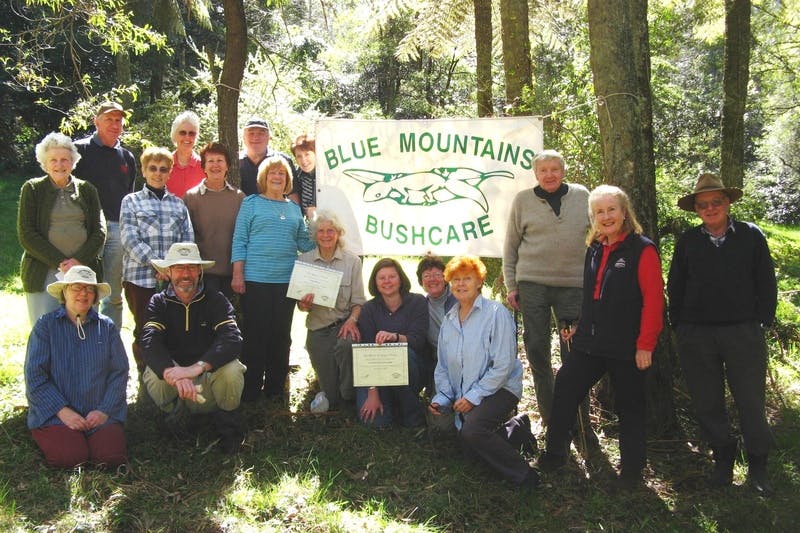Community Conservation Program
This consultation has concluded.

Council is continuing its review of the Community Conservation Program (CCP) which includes Bushcare, Landcare, Community Water Monitoring (Streamwatch), Trackcare and Bush Backyards programs. The Swampcare program is considered as part of Bushcare / Landcare program.
The outcome of this review will be a revised Strategy to guide the future delivery of Council's Community Conservation Program.
Stage One and Stage Two of the stakeholder engagement are now completed. You are encouraged to view the reports in the Library which summarise stakeholder feedback on this important partnership between Council and the community.

Council is continuing its review of the Community Conservation Program (CCP) which includes Bushcare, Landcare, Community Water Monitoring (Streamwatch), Trackcare and Bush Backyards programs. The Swampcare program is considered as part of Bushcare / Landcare program.
The outcome of this review will be a revised Strategy to guide the future delivery of Council's Community Conservation Program.
Stage One and Stage Two of the stakeholder engagement are now completed. You are encouraged to view the reports in the Library which summarise stakeholder feedback on this important partnership between Council and the community.
-
What is the Community Conservation Program?
Share What is the Community Conservation Program? on Facebook Share What is the Community Conservation Program? on Twitter Share What is the Community Conservation Program? on Linkedin Email What is the Community Conservation Program? linkCouncil's Community Conservation Programs includes Bushcare, Landcare, Trackcare, Community Water Monitoring (Streamwatch) and the Bush Backyards Scheme. The Swampcare program is treated as part of Bushcare / Landcare activities.
All of these programs are about partnerships between Council and community
Community volunteers make an enormous contribution to Council’s environmental management programs, with over 500 community members volunteering annually in Community Conservation programs.
In addition to the on-ground benefits realised from these volunteer conservation programs, they also generate community capital and goodwill, and a strong sense of connection with the City’s environment.
Further background information is provided in the Discussion Paper.
-
Why is Council reviewing the Community Conservation Program?
Share Why is Council reviewing the Community Conservation Program? on Facebook Share Why is Council reviewing the Community Conservation Program? on Twitter Share Why is Council reviewing the Community Conservation Program? on Linkedin Email Why is Council reviewing the Community Conservation Program? linkThe reason for the review of the Community Conservation Program is to make sure that, together, we achieve the best possible outcomes for the community and conserving our environment.
The current Bushcare service model has been in place, essentially unchanged, since 1992. Other programs have been introduced since 2001. At present, there is no comprehensive document which covers all of these Community Conservation programs.
It is timely for Council to conduct an overarching review of the range of community conservation partnerships that make up its Community Conservation Program.
Community Conservation Programs present a number of challenges for Council in meeting an increasing community demand with limited resources.
Council needs to ensure that resources continue to be well directed, are responsive to community and environmental needs, and provide value for money. Council also has a responsibility for Workplace Health and Safety and other volunteer governance.
-
What has happened in the CCP Review so far?
Share What has happened in the CCP Review so far? on Facebook Share What has happened in the CCP Review so far? on Twitter Share What has happened in the CCP Review so far? on Linkedin Email What has happened in the CCP Review so far? linkThe community engagement on Council's Community Conservation Program will occur in three stages.
Stage 1: Community Conservation Program Survey (March 2013 on 'Have Your Say')
Stage 1 was completed on 31 March. The survey provided the first step for Council to receive feedback from stakeholders on how well the current programs are working and responses to possible alternative models for Community Conservation program.
Stage 2: Discussion Forum and Focus Groups (10 May to 5 June 2013) explored the existing and possible management models in more detail.
Stage 2 was completed on 5 June 2013.
- A Discussion Forum on Have Your Say provided additional feedback from the general volunteer community on the possible managment models.
- Focus groups of invited BMCC staff and volunteer representatives examined various aspects of the alternative models and the implications for the further development of the Community Conservation Program in the future.
Thank you to all respondents and focus group participants.
Stage 3: Public Exhibition of the revised Community Conservation Program Strategy
The results of the Stage 1 and Stage 2 engagement is currently being used to contribute to the development of a draft Strategy, which will be placed on public exhibition in mid 2014.
The reports on Stage One and Stage Two of the stakeholder engagement can be viewed in the Library.
-
What will happen next?
Share What will happen next? on Facebook Share What will happen next? on Twitter Share What will happen next? on Linkedin Email What will happen next? linkStage 3: Public Exhibition of the revised Community Conservation Program Strategy (May 2014)
All of the feedback received through the entire consultation process will be used to inform the development of a draft Community Conservation Program Strategy which is planned to be submitted to the Council for consideration in April 2014.
After the public exhibition period of the draft Community Conservation Program Strategy , all comments and submissions will be considered in the preparation of a final Strategy which is anticipated to be submitted to the Council for approval in mid 2014.
Key Dates
-
November 2013


